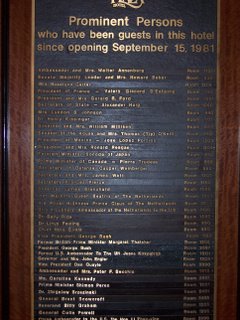The National Hockey League didn't just evolve their brand this year. They performed radical surgery on it.
This season, hockey is exciting again after spending the nineties in a downward death spiral. Before last year's strike, sitting through a game meant watching a bunch of rather large men hug each other for a couple hours. While on skates.
Not surprisingly, fewer and fewer people were finding this exercise especially interesting. All that clutching and grabbing meant that the best skaters and the most skilled players rarely had a chance to entertain.
But after going for some fairly radical rule changes and a completely new approach to officiating, the results are brilliant. If it's been some time since you watched an NHL matchup, you should give it another chance. So far, an overwhelming majority of fans love the new game.
There's a lesson in there for brands. If it's in trouble, it's probably not enough to tweak it. Usually, you're better off blowing the damn thing up and reconfiguring it. Usually being a caveat, of course, since I'm sure there are more than a few examples when a bit of work around edges did the trick.
Still, many brands seem to die a slow death. I wonder how many would be reenergized with truly radical thinking and execution.



